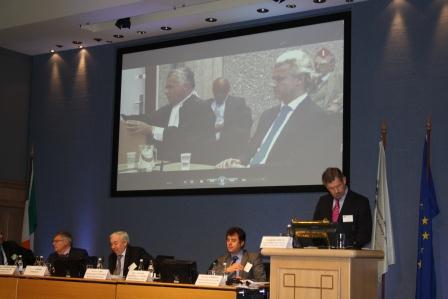2011/2012 Project on Judiciary, Society and the Media
In 2011 the ENCJ set up a project which aimed to study the best practices in how the judiciary coud be better engaged with society and how the media could be used to achieve this goal. The Project Team took stock of the current practices in the judiciaries (for a full overview see the collection of replies to the questionnaire) and came up with a wide range of best practices and drafted a set of recommendations. the recommendations were adopted by the General Assembly in Dublin in 2012. The main recommendations from the ENCJ Report on Justice, Society and the Media include:
- the setting up of judicial spokespersons/press judges;
- drafting regulations for the uses ofd audio and video recording in the courts;
- having clear guidelines for use of smart phones and other communication devices;
- the development of a strategy for the use of each social media;
- the setting up of a website with information for professionals, the press and the general public and a freely accessible database of judgments;
- regulation of the relations between the Judiciary and the media through press guidelines, they should state what the media may expect of the staff of the courts and how the courts should deal with the needs of the media before, during and after court proceedings;
- the development of a proactive media approach focused on individual court cases as well as the entire judicial system.
The project team made a video introducing their project to the General Assembly: Videolink

The presentation of the results of the project team by Erik van den Emster, chairman Netherlands Council for the Judiciary, at the General Assembly in Dublin, May 2012
Working group on "The Judicary and the Media"
An ENCJ working group met over the course of 2005-2006 to discuss the relations between the Judiciary and the Press. The Judiciary and the Media report, reports on the the influence of the media on public trust and on the role of the Councils for the Judiciary vis a vis the court/judges in the relations with the press .The working group concluded that the situation in every country differs and for that reason developing an European model for the organisation of the media relations is useless.
Instead of a model the working group sees many advantages in an inventory of best practices in the field of communication and press relations.

